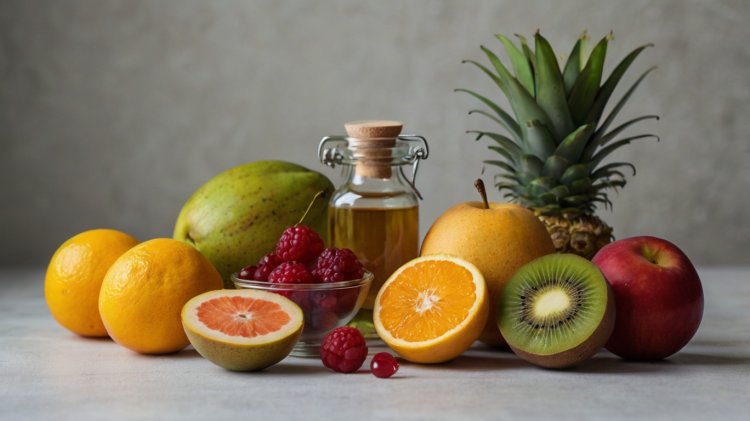DIY Face Masks for Every Skin Concern: Provide recipes for homemade face masks using natural ingredients to address issues like acne, dryness, and dullness
Discover easy and effective DIY face mask recipes using natural ingredients to target common skin concerns like acne, dryness, dullness, and more. Get glowing skin with these homemade beauty treatments!

Want healthy, glowing skin without spending a lot of money? DIY face masks using natural ingredients are a great way to pamper your skin at home. This guide provides easy recipes to tackle common skin problems like acne, dryness, dullness, and more.
Why DIY Face Masks?
Making your own face masks has several benefits:
- Natural Ingredients: You know exactly what's going on your skin, avoiding harsh chemicals and additives.
- Cost-Effective: Homemade masks are often much cheaper than store-bought ones.
- Customizable: You can tailor the ingredients to your specific skin needs.
- Fun and Relaxing: It's a great way to unwind and treat yourself.
Essential Tips for Making DIY Face Masks:
- Always do a patch test: Before applying a mask to your entire face, test a small amount on your inner arm or wrist to check for any allergic reactions.
- Use fresh ingredients: Fresh ingredients provide the most benefits.
- Clean your face first: Wash your face with a gentle cleanser before applying the mask.
- Avoid the eye area: Most face masks are not meant for the delicate skin around your eyes.
- Relax and enjoy: Leave the mask on for the recommended time and relax.
- Moisturize afterward: After rinsing off the mask, apply your regular moisturizer.
Face Masks for Acne:
Acne-prone skin needs gentle cleansing and ingredients that fight bacteria and reduce inflammation.
- Honey and Cinnamon Mask: Honey has antibacterial properties, while cinnamon is anti-inflammatory.
- Mix 1 tablespoon of raw honey with 1/2 teaspoon of ground cinnamon.
- Apply to your face and leave on for 10-15 minutes.
- Oatmeal and Yogurt Mask: Oatmeal soothes irritated skin, while yogurt contains lactic acid, a gentle exfoliant.
- Mix 2 tablespoons of cooked oatmeal with 1 tablespoon of plain yogurt.
- Apply to your face and leave on for 15-20 minutes.
Face Masks for Dry Skin:
Dry skin needs extra hydration and ingredients that lock in moisture.
- Avocado and Honey Mask: Avocado is rich in healthy fats and vitamins, while honey is a humectant.
- Mash 1/2 ripe avocado and mix with 1 tablespoon of honey.
- Apply to your face and leave on for 15-20 minutes.
- Olive Oil and Egg Yolk Mask: Olive oil is a natural moisturizer, and egg yolk contains lecithin, which helps hydrate the skin.
- Mix 1 tablespoon of olive oil with 1 egg yolk.
- Apply to your face and leave on for 15-20 minutes.
Face Masks for Oily Skin:
Oily skin needs ingredients that absorb excess oil and unclog pores.
- Clay and Apple Cider Vinegar Mask: Clay absorbs excess oil, while apple cider vinegar helps balance pH levels.
- Mix 1 tablespoon of bentonite or kaolin clay with 1 teaspoon of apple cider vinegar (diluted with water if you have sensitive skin).
- Apply to your face and leave on for 10-15 minutes.
- Lemon and Egg White Mask: Lemon juice can help control oil, and egg whites tighten pores.
- Mix 1 tablespoon of lemon juice with 1 egg white (whisked).
- Apply to your face and leave on for 10-15 minutes. (Be cautious with lemon if you have very sensitive skin)
Face Masks for Dull Skin (For Glowing Skin):
Dull skin needs ingredients that brighten and exfoliate.
- Turmeric and Yogurt Mask: Turmeric has brightening properties, and yogurt contains lactic acid.
- Mix 1 teaspoon of turmeric powder with 1 tablespoon of plain yogurt.
- Apply to your face and leave on for 10-15 minutes. (Turmeric can stain, so be careful and test a small area first).
- Papaya and Honey Mask: Papaya contains enzymes that gently exfoliate, and honey hydrates.
- Mash 1/4 ripe papaya and mix with 1 tablespoon of honey.
- Apply to your face and leave on for 15-20 minutes.
Frequently Asked Questions (FAQs):
- How often should I use a face mask? 1-2 times a week is generally recommended.
- Can I use these masks if I have sensitive skin? Yes, but always do a patch test first. Choose gentler ingredients like honey, oatmeal, and avocado. Avoid harsh ingredients like lemon juice or undiluted apple cider vinegar if you have very sensitive skin.
- Can I store leftover face mask mixture? It's best to use face masks immediately after making them. Storing them can reduce their effectiveness and increase the risk of bacterial growth.
- What if I don't have all the ingredients? Feel free to substitute ingredients based on what you have on hand. For example, you can use plain milk instead of yogurt or honey instead of maple syrup.
With these easy DIY face mask recipes, you can achieve healthy, glowing skin naturally. Remember to be patient and consistent with your skincare routine for the best results.









